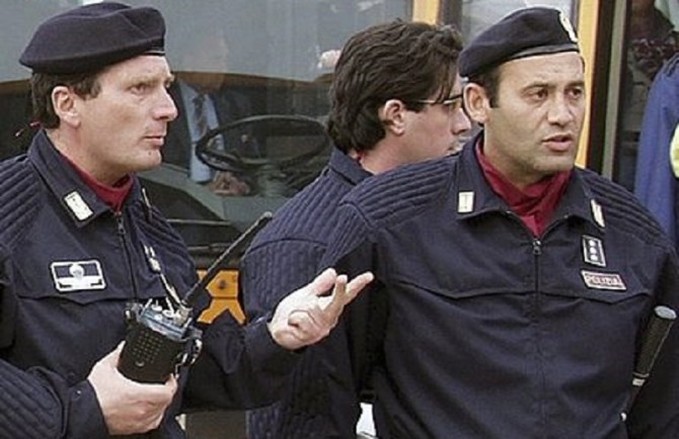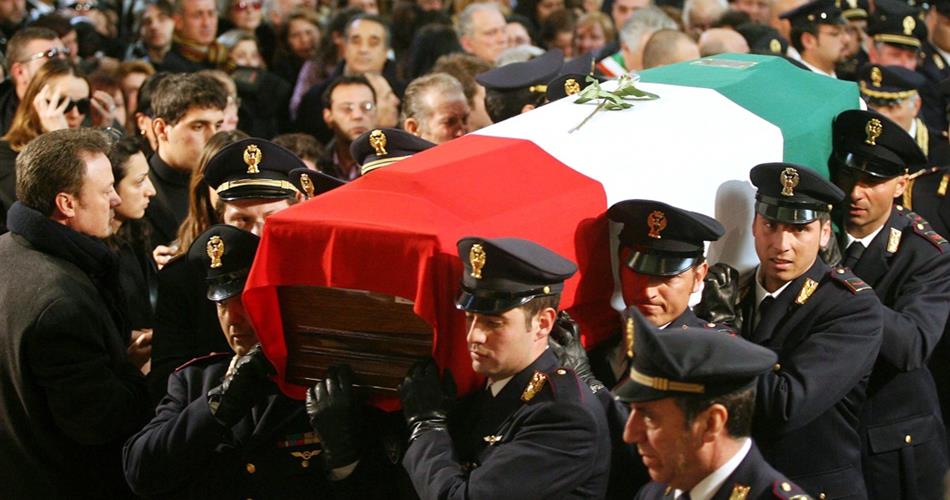Memories; they are powerful things, they can haunt you and comfort you in equal measure. They can be so vivid as to feel like they are happening in the then and now, and they can gradually fade till what was once so clear is now nothing but a greyish blur.
As we get older, memories from our childhood generally begin to fall from our mind as new and more important things take their place. Yet, there are always those memories that, despite happening long ago, we can recall instantly.
For me, one such recollection involves my Dad. Many years ago, as my family and I drove home from visiting our Grandparents, we decided to stop off in a shop in a small rural Irish village. Our reason for stopping was not spontaneous, but rather more calculated. For my Dad happened to be the local Garda (Policeman) for this tiny village. As my brother and sister (sorry Mark you weren’t around at this stage) hopped from the car and made our way to the Ice-cream freezer in the store, my Dad started chatting with the elderly lady behind the counter, who he knew well. Breaking away from the conversation with my Dad for a moment, she called over to us saying, ‘take any Ice-cream you want, it’s free, thanks to the hard work your Dad does in this village.’
I don’t know why, maybe because I was treated to a free ice-cream, but this moment has always stuck with me. Or maybe it has stuck with me because I remember the respect a good Garda (Policeman) can earn in a community. Since then, I have always had a deep respect for Policemen and women who do a difficult and an often-thankless job.
While the relevance of this short story may seem completely unimportant, it does in some small way lead me to the tragic tale of Filippo Raciti.
Filippo Raciti, pictured on the right.
I don’t claim to know why Raciti became a Police Officer. Maybe he too had experienced an encounter like the one mentioned above, one that inspired him to join the force. Perhaps he had a sense of duty, a desire to give something back to the community. Or maybe he simply joined because he knew it would be a steady income in a region of Italy (Raciti was Sicilian) that had become synonymous with high unemployment rates.
What I do know, though, is that on the night of 2 February 2007, Raciti – a married father of two boys – got ready for work as he had done countless times before. Catania were playing Palermo in the Sicilian derby and Raciti was on duty. At this time, the shame and embarrassment of the Calciopoli scandal was still very much fresh in the memory, happening as it did only the season before. As such, Italian football was at its lowest ebb. But little did people know that on this February night, calcio would descend further into the doldrums.
The match had originally been scheduled for a Sunday afternoon on 4 February, but was forced into a change so as to not clash with Catania’s most important religious festival, the Feast of St. Agatha. This now meant that the game would be taking place under the cover of floodlights on a Friday evening. It was a move that infuriated the Police, who feared that tensions would be heightened and the threat of violence increased as darkness descended. In an attempt to counteract any such violence, some 1500 Police officers were drafted in to manage the situation.
Initially, the match kicked-off as scheduled and the action that unfolded proved rather drab. What, however, was very noticeable about the encounter, was the apparent lack of travelling Palermo fans within Catania’s Stadio Angelo Massimo. Finally, a few minutes after the second half began, away supporters began to enter the ground. Needless to say, they were not overly thrilled at missing so much of the game, leaving tensions even higher. Reports then began to emerge of trouble accruing outside the ground, where Police escorting Palermo fans to the ground had been attacked by Catania fans.
What happened next can only be described as anarchy. Video’s which can be viewed on YouTube show scenes akin to warzone’s, as area’s around the stadium burned and rioting took hold. Meanwhile, inside the ground, the match continued to be played. That was until the 60th minute, when the referee called a halt to proceedings when the tear-gas used by Police to quell the crowd, wafted into the stadium and began to affect the players.
Amongst the Officers trying to control the rioting was Raciti. Amid the chaos, Raciti came under attack and was struck by either a rock, or as some say, part of a sink that had been broken from the stadium’s toilets. Although not feeling right, Raciti continued to carry out his duty. That was until a firework landed close by and exploded. One of Raciti’s colleagues later described how, upon hearing the explosion, he ran to Raciti’s aid. When he reached his fellow officer, Raciti is said to have told him, “Don’t worry it’s nothing, but take me to hospital. I don’t feel well.”
Less than three hours later, Officer Filippo Raciti died. He was 38 years of age. His cause of death was revealed as liver trauma, attributed to the blow caused by a blunt object. Amazingly, as a wife and two sons worried and grieved for their husband and father, the match inside the stadium recommenced with Palermo finishing victorious in controversial circumstances.
But on a night like this, football meant nothing. Three years after the awful events of that February night, Antonino Speziale would be sentenced to 14 years in prison for first degree manslaughter of Officer Raciti. At the time of the incident, Speziale had only been 17 years of age.
Already reeling from Calciopoli, Italian football was plunged into even deeper soul searching. As a result of the Raciti tragedy, football on the peninsula was suspended for a short period of time. But while the debate surrounded the future of calcio in the country, the most important part of this terrible tale can often be forgotten; that a young man, a husband, and father of two, lost his life.
No doubt, on that night 10-years ago, Raciti put on his shirt, laced up his work boots and trundled into work thinking about how he’d do his bit and then go back home to his family and relax. He was just a man like any other, and though he wore the uniform of law enforcement, he shared the same ambitions, dreams and fears as any other individual. Yet, it was because of that uniform that Raciti became a legitimate target and would pay the ultimate price.
And it was because of the death of Raciti that Calcio sank to its darkest, most shameful hour.
Words by Kevin Nolan:@KevinNolan11
‘Kevin is an Irishman who loves to watch calcio no matter how lowly the level, Parma being his team of choice. Besides the@GentlemanUltra, he also writes for@ItalianFD.’

